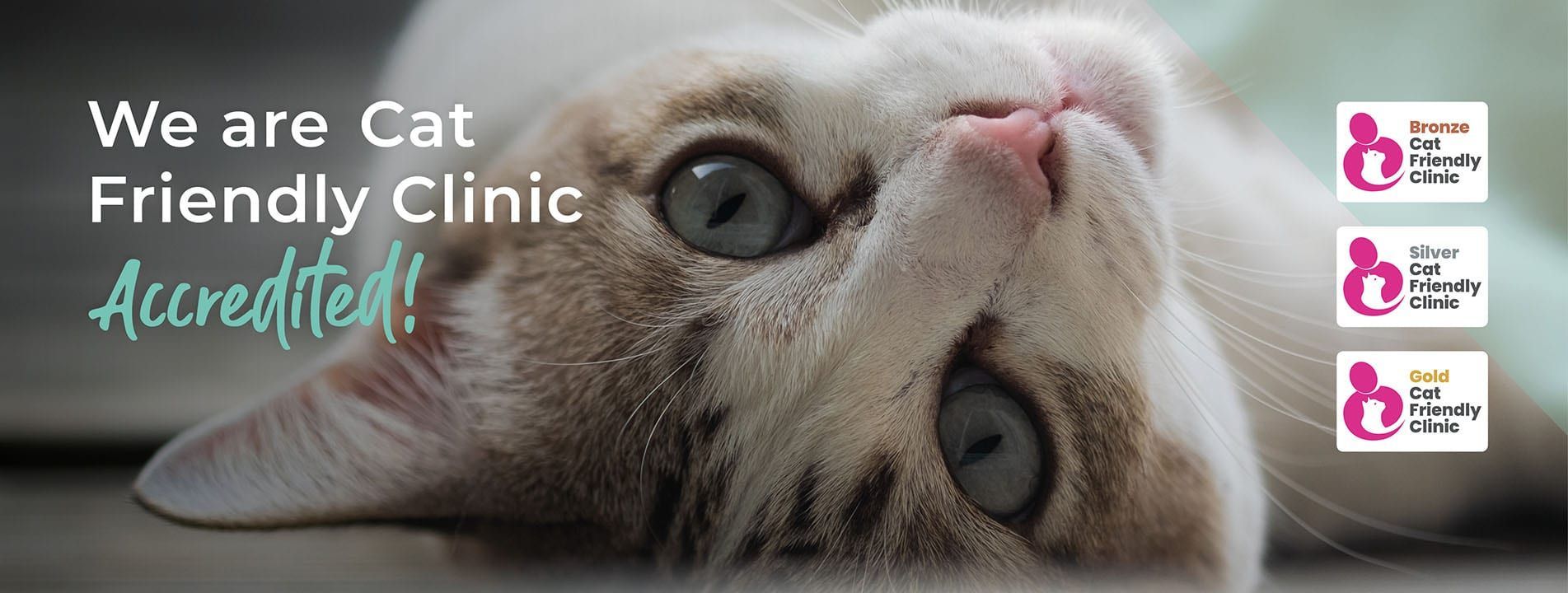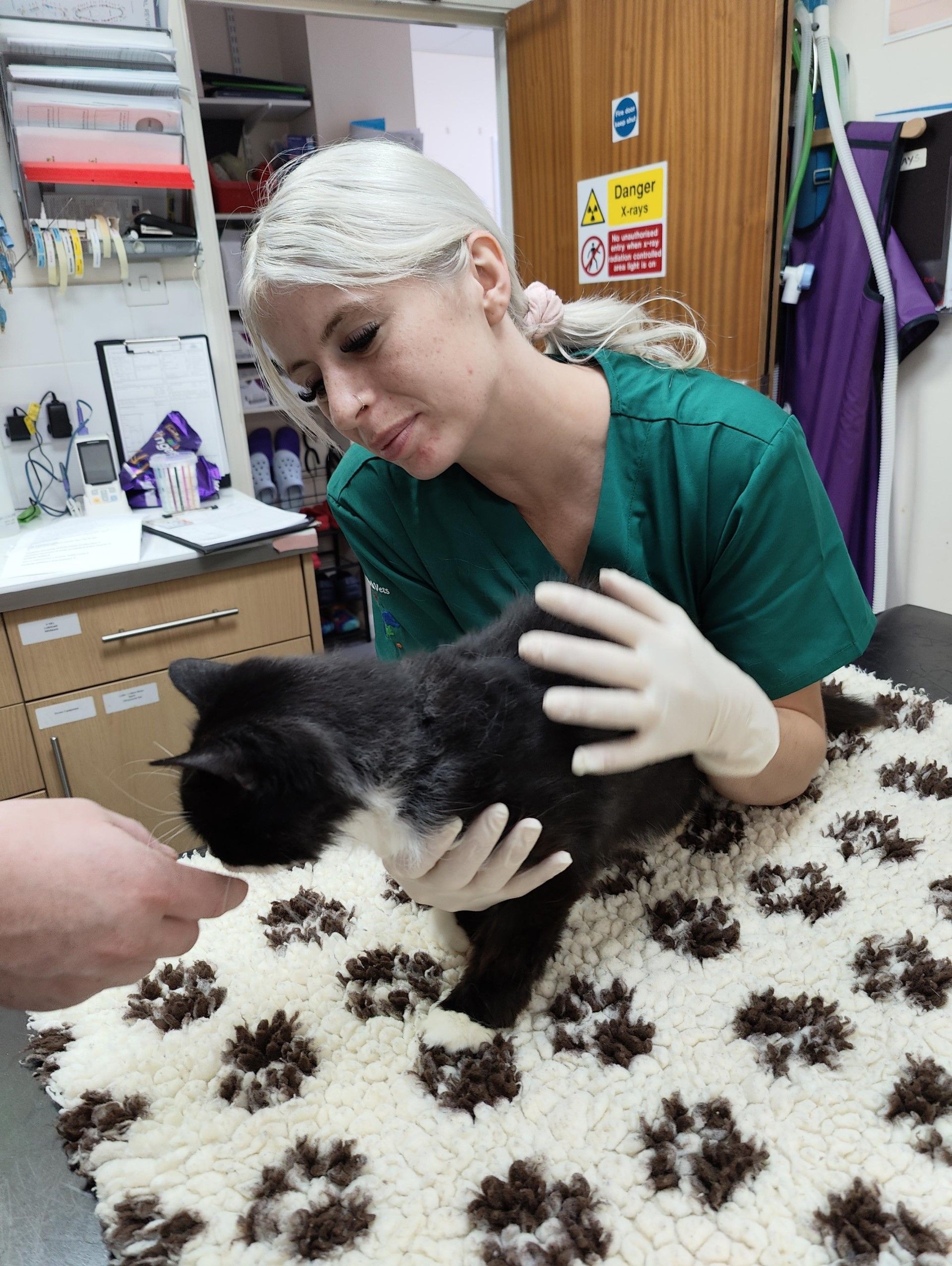We are accredited to the highest level (GOLD) as a Cat Friendly Clinic (CFC). The CFC programme has been developed by the International Society of Feline Medicine (ISFM) who are the Veterinary division of the leading feline charity International Cat Care.
This is an internationally-recognised accreditation and certifies the practice meets rigorous standards set by the ISFM. We are ecstatic that our dedication to cats has been recognised, and we are the only vets in a 30 mile radius and within the Burnham and Highbridge area to have been awarded gold cat friendly status.
Under the programme, a clinic has to prove rigorous adherence to a set of criteria which includes provision of facilities and demonstrations of staff activities and attitudes aimed at reducing stress in cats, both as in-patients and out-patients. The criteria includes having separate dog and cat waiting areas, feline-friendly hospitalisation cages, and veterinary equipment specially for treating cats. Most importantly, staff are trained in approaching and handling cats sensitively and respectfully, and in maintaining high standards of Veterinary care, including continuing to update their knowledge of feline medicine as new treatments and information become available.
We have worked hard to achieve the ISFM Cat Friendly Clinic accreditation, to reassure our clients that all our team understand cats and their requirements.
Our Gold Award Winning Facilities include:
• Extra-large gold standard accommodation
• Accommodation made from quiet and warm polycarbonate not steel
• Cat shelters for climbing on and snuggling under
• Feliway pheromone diffusers
• Cat toys and entertainment
• The latest digital x-ray and ultrasound machines
• Specialist feline diagnostic equipment
• In house laboratory and blood analysis machines
• State of the art surgical suite including anesthetic monitoring equipment and patient temperature control
• Feline dental suite including dental x-ray
Our Cat Advocates
All of our team love our feline friends and are trained in approaching and handling cats sensitively and respectfully, whilst stay up to date with their knowledge of feline medicine. Whilst any one of our team are happy to help you, we also have a specially designated Cat Advocate, Gareth Buckley MRCVS. Gareth was proud to receive this accreditation for Black Rock Vets –
‘’By undertaking the Cat Friendly Clinic Accreditation, we have committed to delivering the highest standard of cat care, with compassion and expertise”.
We look forward to welcoming you and your feline friends into the practice!



